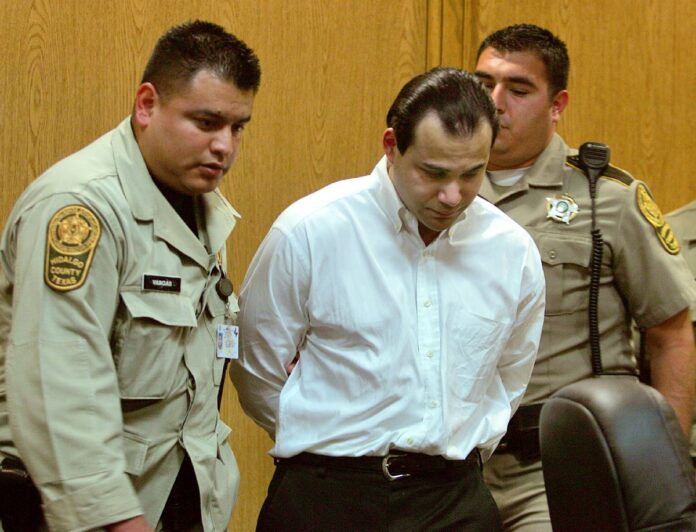
The director of state’s prison system has filed a motion requesting U.S. District Judge Rolando Olvera recuse himself from presiding over the death penalty case of John Allen Rubio.
Bobby Lumpkin, director of Texas Department of Criminal Justice Correctional Institutions Division, filed the motion Monday stating since Olvera first stayed the case to allow Rubio to exhaust state remedies and then reopened case that “his prior involvement in Rubio’s case mandates disqualification under the relevant statute, the Director moves to have Judge Olvera recused and ask that this matter be assigned to a new judge,” the motion reads.
On Feb. 22, Olvera signed and order to reopen Rubio’s case. His order lifts a stay on the case and will allow Rubio’s attorneys to submit a seconded amended petition that may probably cite why the Brownsville father’s conviction should be tossed out.
Lumpkin’s motion in part states that any justice, judge or magistrate in the United States shall disqualify himself from any proceedings in which his impartiality might be reasonably questioned.
“ He shall also disqualify himself in the following circumstances: where he served in governmental employment and in such capacity participated as counsel, adviser or material witness concerning the proceeding or expressed an opinion concerning the merits of the particular case in controversy.”
Since Olvera oversaw Rubio’s initial state habeas proceeding before Rubio’s trial, his active participation in the case likely disqualifies him, the motion states. “Judge Olvera was a ‘governmental employee’ who expressed an opinion concerning the merits of this particular case in controversy.”
In Rubio’s first petition, filed in September 2020, his attorney filed a writ of habeas corpus in federal court “declaring unconstitutional and invalid his (Rubio’s) conviction for capital murder as well as the resulting death sentence.”
Rubio’s second amended petition should be filed no later than April 20, 20222, the order states.
A jury in 2010 found Rubio guilty in the beheading of Julissa Quesada, 3, John E. Rubio, 14 months and Mary Jane Rubio, 2 months, the three children of his common-law wife Angela Camacho. John Allen fathered Mary Jane, but treated all children as his own.
Rubio admitted to killing his children because he thought they were possessed by the spirit of his dead grandmother, court documents reflect. He and Camacho had discussed burying the childrens’ bodies and fleeing to Mexico.
In his first petition, attorneys claimed that Rubio’s appointed defense in his murder trial did not represent him properly and that his case was handled by a district attorney that was steeped in scandal and misconduct.
On Feb. 3, 2021, Olvera granted the temporary stay that allowed Rubio’s legal team to present new court documents citing “new evidence has come to light since state habeas review concluded.”
Although a second writ of habeas corpus was filed with the Texas of Court of Criminal Appeals on Rubio’s behalf, the higher court in January denied his writ. In its ruling the court stated that Rubio failed to satisfy the requirements under Texas law and that his writ was “an abuse of the writ without considering the claims’ merits.”
In an earlier interview, Cameron County District Attorney Luis V. Saenz said, “The Rubio case continues to be a horrific and painful open wound for the community. It screams for finality. As the Court pointed out this is the defendant’s second state writ that the Court has denied. We will now continue working towards having the defendant’s pending federal writ also be denied. The defendant must be held accountable for what he did: murdered and decapitated three innocent children.”
According to a confession Rubio made to police, he admitted to killing the children in 2003 because he believed there was an evil presence in them. He even asked one of the officers first to arrive at the crime scene to place him under arrest, according to the officer’s statement.
Rubio, 40, a Brownsville native, remains on death row at the Polunsky Unit in Livingston, Texas.
Camacho, 41, pleaded guilty to murder in 2005 and was sentenced to life prison and remains in custody.




